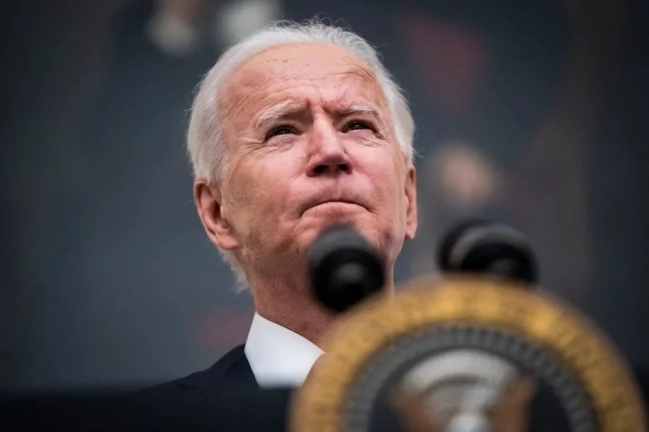
President Biden is starting on the right foot with Russia
Opinion by Editorial Board
Jan. 23, 2021 at 8:00 a.m. EST
PRESIDENT BIDEN’S opening moves to deal with Russia incorporate valuable lessons from the Cold War: that it is possible to engage Moscow when it’s in the interests of the United States while continuing to unreservedly question and confront behavior that is adversarial and harmful. These multiple tracks promise to bring common sense back into U.S. policy after four years of mystery and incoherence at the highest level.
Mr. Biden announced that the United States will propose to Russia a five-year extension of the New START accord limiting strategic nuclear weapons, which expires Feb. 5 and has a provision for such an extension. This is the last remaining bilateral treaty limiting nuclear weapons after the collapse of the Intermediate-Range Nuclear Forces Treaty under President Donald Trump, whose policies toward Russia veered between his own affinity for President Vladimir Putin and more skeptical approaches in his administration. Extension of the New START accord, which limits both sides to 1,550 nuclear warheads on 700 launchers and has effective verification, is in the interest of both nations. Mr. Trump’s administration dithered on seeking an extension while trying unsuccessfully to lasso China into a multilateral negotiation, a worthwhile long-term goal that can be pursued later.
Mr. Biden should not fail to take advantage of the five-year extension to take stock of future threats, both nuclear and conventional, from Russia, China and elsewhere. Where it is in the interests of the United States, he ought to look for new arms control opportunities.
The president also ordered an intelligence assessment on four nettlesome aspects of Russian behavior: the recent SolarWinds cyber breach, interference in the 2020 election, the use of chemical weapons against opposition leader Alexei Navalny and reports that Russia placed bounties on U.S. soldiers in Afghanistan. The intelligence assessment will give Mr. Biden a chance to hold Mr. Putin and his government to account where necessary, and to protest in the strongest terms where appropriate. Each of these episodes demands a stronger U.S. response than Mr. Trump provided. In the case of Mr. Navalny, the question is not only the fate of the leading opposition figure who was target of an assassination attempt, but also Russia’s blatant disregard for an international treaty prohibiting the use of chemical weapons.
During the Cold War, President Ronald Reagan managed to negotiate arms control agreements with the Soviet Union while also maintaining pressure in other areas, such as regional conflicts and human rights. Mr. Biden, who knows those years well, is right to adopt the multitask template for today. Russia has been repeatedly testing the West. The president’s order to the intelligence community also ought to include a report on the “Havana syndrome” harassment that injured and sickened U.S. officials abroad.
Mr. Trump’s overly personal approach to Mr. Putin was as simplistic as it was shadowy. Mr. Biden is starting on the right foot, announcing from the outset that he is prepared to engage on important business but also that he will not flinch at Mr. Putin’s unpleasant and dark arts.
No comments:
Post a Comment